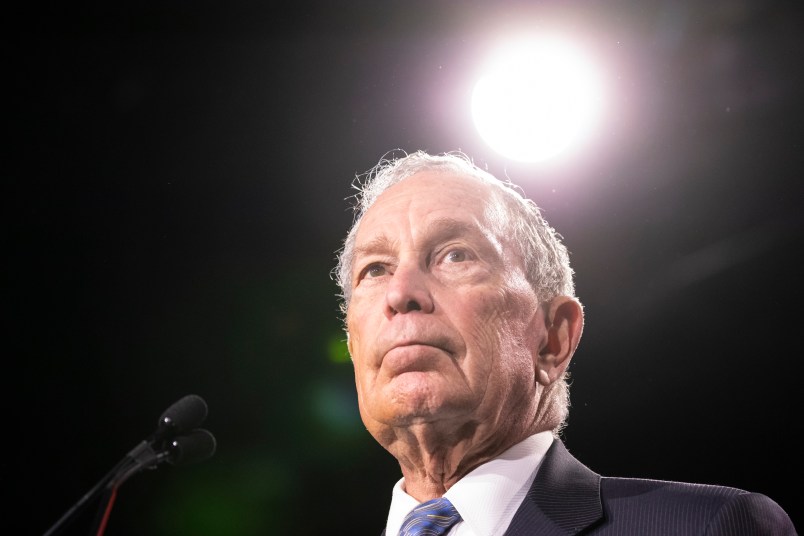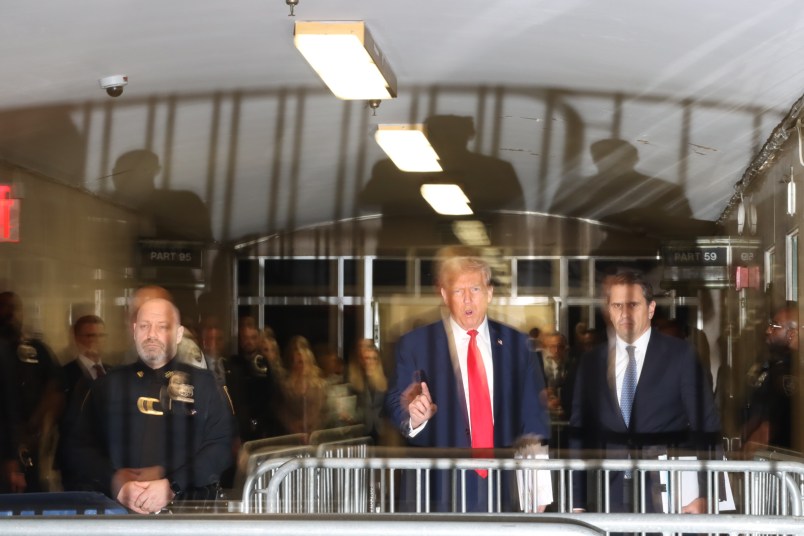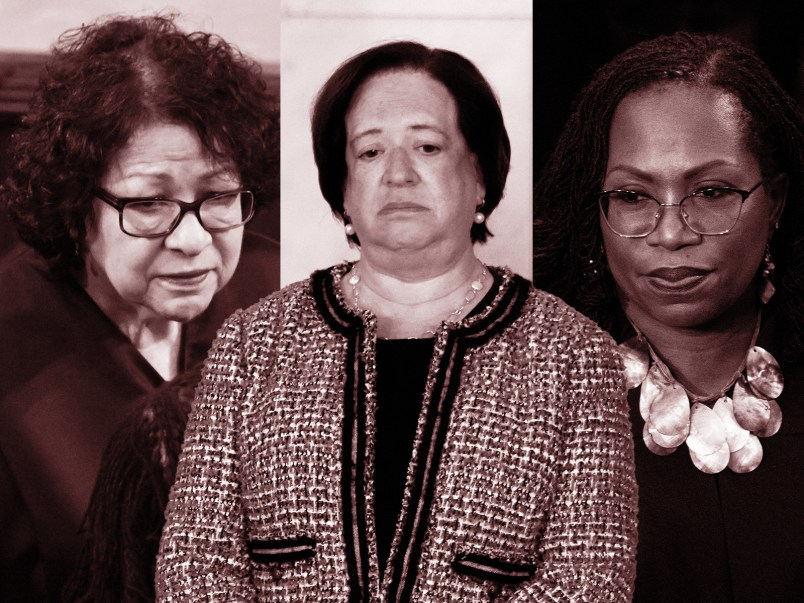Welcome to prime time, Michael Bloomberg.
The former New York City mayor qualifying to appear on the 2020 Democratic primary debate stage Wednesday night comes as a number of past controversies come home to roost for the billionaire media mogul.
Within the past week, Bloomberg has come under fire for his controversial stop-and-frisk policing policy during his mayoral term, allegations that he reportedly made sexist remarks toward female employees and his remarks arguing the link of the 2008 financial crisis to the end of redlining.
On the heels of the resurfaced stories, 2020 Dems used those headlines to pounce on Bloomberg during Sunday morning TV appearances.
As Bloomberg continues to be the highest spending presidential candidate of all time, having spent $338.7 million on traditional media thus far, he will most likely have to answer questions about these controversies during his first Democratic debate appearance.
When asked for comment regarding the reaction to Bloomberg’s controversies, Bloomberg campaign press secretary Galia Slayen told TPM that “it’s not surprising” to the campaign that Bloomberg faces backlash as he continues to rise in the polls.
“Other candidates, including Donald Trump, start to get nervous,” Slayen told TPM in a statement. “They’re seeing Mike winning over voters across this country with his record of taking on tough fights and strong case that he is the only candidate to defeat Trump in November.”
Here’s a rundown of the controversies that Bloomberg will most likely have to respond to Wednesday night:
Stop and frisk
Audio from a 2015 speech in Colorado of Bloomberg defending his controversial stop and frisk policy prompted the former mayor to apologize for the policing practice last year. In the audio, Bloomberg described the policy as a way to decrease violence by throwing minority kids “up against the walls and frisk them.”
Despite how his past support of stop and frisk policing has added to scrutiny surrounding his record on race, Bloomberg gained endorsements from three black lawmakers — Reps. Lucy McBath (D-GA), Gregory Meeks (D-NY) and Stacey Plaskett of the Virgin Islands — last week.
Sexual harassment allegations
Allegations that Bloomberg made misogynistic remarks toward female employees surfaced in a Washington Post report on Saturday. The Post published a 1997 lawsuit against Bloomberg and his company filed by Sekiko Sakai Garrison, a former salesperson, that detailed the billionaire’s alleged sexist comments toward female employees. Bloomberg allegedly told Garrison to “kill it!” in response to her pregnancy at the time. A former Bloomberg employee told the Post that Bloomberg “talked kind of crudely about women all the time.”
Linking “end” of redlining to 2008 financial crisis
At the height of the 2008 financial crisis, Bloomberg argued that the end of redlining contributed to the economic collapse during a lecture at Georgetown University in 2008. “It probably all started back when there was a lot of pressure on banks to make loans to everyone,” Bloomberg said during the lecture, referring to the discriminatory housing practice that targeted people of color seeking to borrow money to afford homes.
“Redlining, if you remember, was the term where banks took whole neighborhoods and said, ‘People in these neighborhoods are poor, they’re not going to be able to pay off their mortgages, tell your salesmen don’t go into those areas,’” Bloomberg said.










